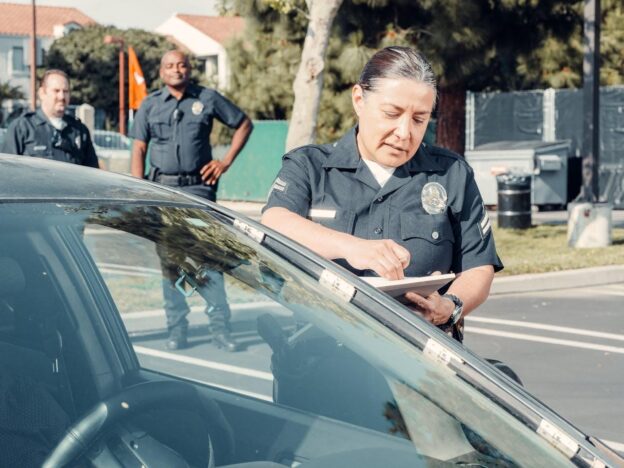Getting hit with a DUI or DWI charge isn’t anything to take lightly. These types of offenses can do real damage if not handled the right way. We’re talking about fines, license suspensions, and even possible jail time, depending on the situation. And that’s just for a first offense! Repeat offenses get even worse punishments.
But it doesn’t stop there. One of these convictions will stay on your record for years, messing with job prospects and skyrocketing your insurance. Nobody wants to follow them around long-term.
Your license, wallet, and potentially your freedom are at stake here. So, pay close attention to these crucial steps to strengthen your defense. Let’s make sure you do this right.
-
Hiring an Experienced DWI Defense Attorney
When dealing with a DUI/DWI charge, making an informed decision about legal representation is crucial. Your best first move is to hire an attorney who defends explicitly these types of cases.
These DWI defense attorneys have an enormous advantage – they’ve seen it all before and know the ins and outs of DUI law inside and out. They understand how things typically play out with local police, prosecutors, and judges. No one is better equipped to navigate the system.
Even more importantly, a DWI attorney can look at the specifics of your situation and tailor their strategy. Things like prior offenses in your history, whether you refuse roadside sobriety tests, or if anyone was injured or property damaged provide valuable context. An experienced lawyer considers it all when making recommendations.
It is worth paying upfront for a specialized DUI defense lawyer, especially for more severe charges that could threaten job security or personal freedom with jail time. Trying to go it alone when your license and future are at stake is not worth taking. And those consequences don’t end after sentencing – DUI convictions linger for years on background checks and forms.
-
Remaining Silent Until Counsel is Present
Being careful about what you say when pulled over on suspicion of DWI is vital. At this stage, it’s crucial not to speak to the police without your lawyer present.
Cooperating fully may seem like the easiest thing at the moment. But the truth is, any comments you make can potentially damage your case going forward. Saying even little things like admitting to a drink or two or agreeing quickly to roadside sobriety tests before counsel is involved eliminates defenses later on.
It’s also important to remember – the police aren’t there as your friend in that situation. Their job is building a case against you, not protecting your legal rights. That’s what your lawyer is for.
A DUI attorney understands how initial interactions unfold and impact the next steps, like chemical tests and plea deals. Their guidance on field sobriety maneuvers or whether to submit a breath sample gives your defense the strongest protection from the beginning.
-
Requesting and Completing Tests Wisely
When the officer asks you to perform roadside sobriety tests or submit a breath/blood sample, it is essential to wait for your lawyer’s advice first.
These chemical tests and field maneuvers are a minefield of legal technicalities. The outcome isn’t always clear-cut. Your lawyer knows all the ins and outs of different testing factors that influence whether consenting or refusing leads to a better result.
For instance, the roadside tests were iffy, but you blew over the legal limit. In that case, denying the breathalyzer may be smarter since it wouldn’t outright prove intoxication. But on the flip side, visibly struggling in field tests yet passing the chemical analysis could help prove sobriety if it came to that.
Your attorney weighs your situation – how tests went, the stories involved, and machine reliability concerns. Going against counsel’s guidance without understanding bigger implications could jeopardize your defense.
-
Considering Chemical Test Refusal Cautiously
How states handle test refusal is not simple. Outcomes depend heavily on variables like location-specific laws and court precedent.
Penalties for denying a breath or blood test are anything but uniform, ranging from several months to over a year of license suspension. At the same time, consent provides evidence that could incriminate.
This is why an attorney intimately familiar with refusal case rulings in your jurisdiction offers insight unmatchable elsewhere. They grasp the nuances that influence weighing consent versus refusal pros and cons.
For example, how strong is other existing proof of intoxication? What’s someone’s history with offenses? Given the normal margin of error, will these machines reliably produce results below legal limits?
A DUI attorney can scrutinize it all – testimony, BAC statistics, and any mitigating circumstances. Based on that context, they’re strategically positioned to recommend surrendering or upholding refusal rights depending on which advantages the situation more.
-
Maintaining Complete Sobriety
Drinking at all before the case is over tells the court you aren’t taking this entirely seriously. Prosecutors and judges aren’t going to look kindly on that, and it gives them ammo to strengthen penalties.
It also drastically increases the chances of getting into an unnecessary repeat situation if you end up in contact with police while intoxicated—every extra issue piles on risk.
Staying on top of your game means keeping a clear head, too. It would help if you thought sharply to assist your lawyer and make the best decisions regarding the defenses and arguments. Even hangovers are no good when dealing with critical legal processes.
Completely removing alcohol from your life temporarily assures none of those preventable problems can occur and cloud your judgment.
Final Thoughts
Your instinct is wanting to handle things solo to save money after getting hit with a DWI. But you must understand – a lot is riding on the result here. We’re talking about consequences that could continue affecting your life and liberty for years.
So it’s not worth trying to wing it yourself when so much is on the line. Follow the steps outlined above and ensure you work with a reputable attorney for the best results.








